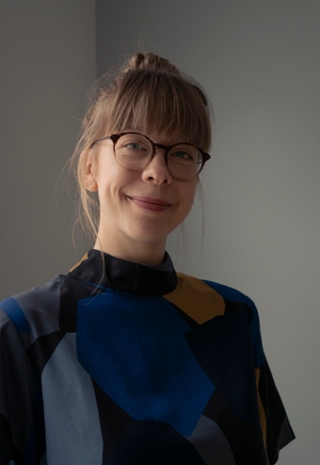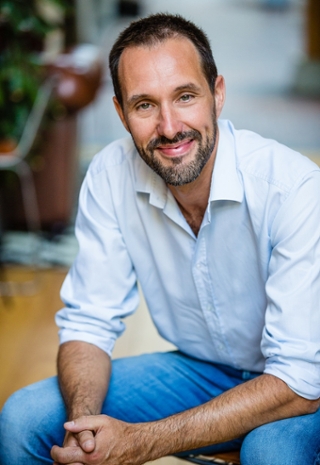Research: another piece of the physiotherapy jigsaw puzzle
4 mei 2021 14:12 | Urban VitalityContributing to the physical and emotional health of patients and adding value to her field. Those are former student and physiotherapist Heather’s (28) goals. In 2014, she moved from the United States to Amsterdam for love, before enrolling in Amsterdam University of Applied Science’s European School of Physiotherapy (ESP). During the final two years of her degree, she worked with lecturer-researcher Maarten van Egmond on his PhD research project.
Many physical symptoms are caused by neurological disorders," Heather, who already has a degree in Behavioral Neuroscience in the US, explains. “I wanted to switch to the clinical side of things, and thought that physiotherapy would offer plenty of opportunities to help people.

PhD research
In 2015, Heather approached Van Egmond. “He was researching whether patients with esophageal cancer had fewer complications after surgery and recovered faster if they had undergone training with a physiotherapist first, and I wanted to contribute. I was drawn by how the project combined the physical and emotional aspects of disease: the patients involved were suffering from a serious illness and were going through emotionally trying times at the same time.”
Tests and home visits
Heather performed various tests on patients. “I monitored their muscle strength, weight and walking ability, for instance, as well as entering research data into a database and developing exercise programmes with and for patients. If patients struggled to get up from a chair after surgery because of muscle loss, I would add leg exercises to their regimen. I worked with patients to explore what they needed to live independently. When people were too sick to visit the practice, I would go to them on a home visit. Gradually, I honed my research skills, such as data processing with SPSS software and the way I talk to people, listen and empathise with them."
Smiles and satisfaction
Heather earned elective credits for participating in Van Egmond’s study, as well as being reimbursed for her work as a student assistant. “The most satisfying part for me, personally, was seeing my patients smile when they managed to take another step forward in their recovery process.” Of course, it wasn’t all plain sailing. "I worked closely with a young male patient, who ended up succumbing to his disease. It was the first time that this had happened to me and it left me reeling, although I was also glad that I had been able to support him in the final stages of his life.”

Critical attitude
Van Egmond has since been awarded a doctorate and is a Associate Professor in Research: “During the degree programme and internships, we train students to become skilled professionals. After graduating, they are fully-fledged physiotherapists who can treat their patients properly, following evidence-based practices wherever possible. That’s why it’s so important that students get to experience how scientific research can be of great practical value in actually treating patients. Research furnishes you with a critical attitude and the ability to reflect on your own methods, which only benefits patient care in the end.”
Theory and practice
Heather benefited greatly from improving her research skills, and her final thesis was even published in the Osteoarthritis and Cartilage Open journal. She now works in a nursing home. “The fact that I already encountered seriously ill and even dying patients during my studies has been a great help, as was the opportunity to apply what I had learned in my lectures in practice. In the future, I definitely want to do more research. Why? It’s like putting together a huge puzzle. By very critically examining your own work processes, you can ultimately add real value to your field.”
